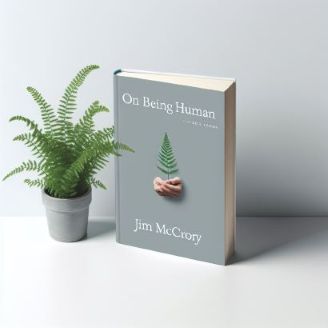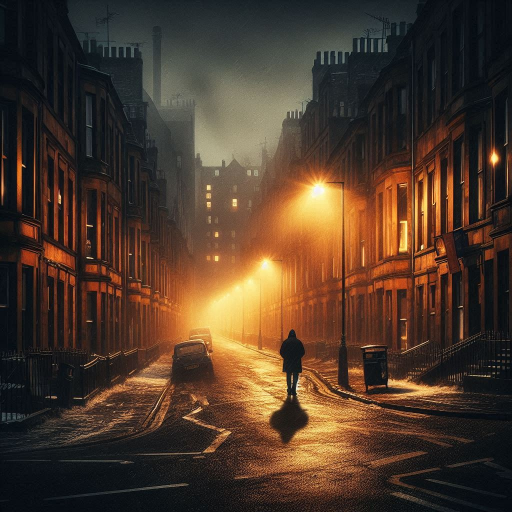
The Warmth of Unknown Faces
We may have met. Perhaps on the West Highland Way, or was it that day in Dubrovnik, maybe Warsaw or Berlin or the Govan we grew up in. Or perhaps we may never have met. What’s the chances? I was pondering this as I wandered through Glasgow yesterday. All these people—some bright with a ready smile, some carrying their burdens like invisible luggage. The woman silently debating which Christmas jumper to buy for her husband or was it her dad. The man in the wheelchair asking gently for a few coins. The fellow in Waterstones buying six books, moving with the certainty of someone who knows exactly what he seeks. I caught myself wondering about him: gifts, or indulgence? A well-read soul, either way. And there it was again—that restless longing the Portuguese call saudade de conhecer o mundo, that aching desire to know the world and its people.
As the city opened around me, it felt like moving through a tapestry woven from unspoken stories. Each person I passed was a quiet universe, complete, complicated, immeasurably rich. Yet all I glimpsed were small fragments: a glance, a gesture, the turn of a shoulder as they slipped past. It’s astonishing, really, how many lives we brush against without ever stopping long enough to feel the contours of their humanity.
Still, something in me thrills at these brief proximities. I find myself imagining the paths that brought each stranger to that precise moment beside me on Buchanan Street. Were they running late? Were they thinking of someone they love? Were they wrestling with a decision or relishing a secret joy? There’s a gentle magic in the not-knowing, a kind of soft wonder that asks nothing more than attention.
I suppose that’s the heart of it: the warmth I feel doesn’t come from conversation but from possibility. The possibility that any one of these unknown faces could have been a friend, a confidant, a companion for a few miles or a few years. We pass through each other’s stories like shadows—yet the passing leaves an imprint, however faint. It reminds me that the world is wide, and full of people I have yet to meet, people who might change the colour of my days.
As I walked, this thought settled into me with surprising tenderness: even in a crowd, we are not alone. We share the pavement, the weather, the swirl of November lights, the faint smell of German bratwurst as I drift past the stall in St Enoch’s. We share the silent promise that life is happening around us, constantly, vibrantly, and that we are part of it whether we speak a word or not.
Maybe this is why I’m drawn to strangers in the first place. They represent the untold, the unfamiliar, the chapters unwritten. They remind me that the world is not exhausted, that there are still stories waiting beyond the curve of the road. And in that sense, every unknown face carries its own kind of warmth, a glow of potential, fragile but unmistakable.
By the time I reached the end of my walk, dusk had begun to gather over the rooftops. The city lights flickered alive, scattering gold into the evening air. People hurried past, bags swinging, scarves tucked tight against the cold. I watched them for a moment, feeling that gentle ache again, not loneliness, but a yearning toward connection, however fleeting.
Perhaps we have crossed paths somewhere. Or perhaps our worlds will never quite collide. But the thought of you—another unknown face, another story moving through its own landscape—brings a quiet comfort. In the grand weave of things, we’re all wanderers, drawn toward one another by the faint, persistent warmth of simply being human.
And then another thought rose, soft but steady: Wasn’t it that author, Gwendolyn Brooks in Maud Martha who once wrote about all this life and what shall we do with it? But, the warmth toward unknown faces is not only for this world. This echoes something deeper—a recognition that, in the long light of eternity, many of these unknown faces may one day be familiar. After all, life does not end with our brief crossings on a winter street. With eternity in view, there will be more than enough time to meet all those whose names are held in God’s Book of Life. Time without hurry, time without loss, time to finally see each other as we were meant to be.
Many Christians understand the great promise of Scripture as having both a present and a future glow—a hope we taste now, and a fullness still to come. Paul spoke of the hidden wisdom of God, the things no eye has seen, and no mind could yet imagine, made known in Christ. Throughout Scripture the same thread runs: God preparing something new, something whole—a restored world free from sorrow, death, and decay.
If that is so, then every stranger I pass may be someone I’ll one day greet with recognition instead of curiosity. The woman with the jumper. The man in the wheelchair. The fellow with six books tucked under his arm. And countless others whose paths brushed mine for a breath and then were gone.
We move through this world surrounded by lives known only to God. But the day is coming when loss will have no place, when separation will be no more, and when the warmth of unknown faces will become the joy of known ones—beloved, redeemed, gathered into the same forever.
Most likely we have never met. At least not yet. But in the hope set before us, there is always the promise that someday, in the renewed creation God is shaping even now, we will have all the life we need to meet, to know, and to rejoice together in the great story He has written.
“No eye has seen,
no ear has heard,
no heart has imagined,
what God has prepared for those who love Him.”
I Corinthians 2:9 (BSB).







